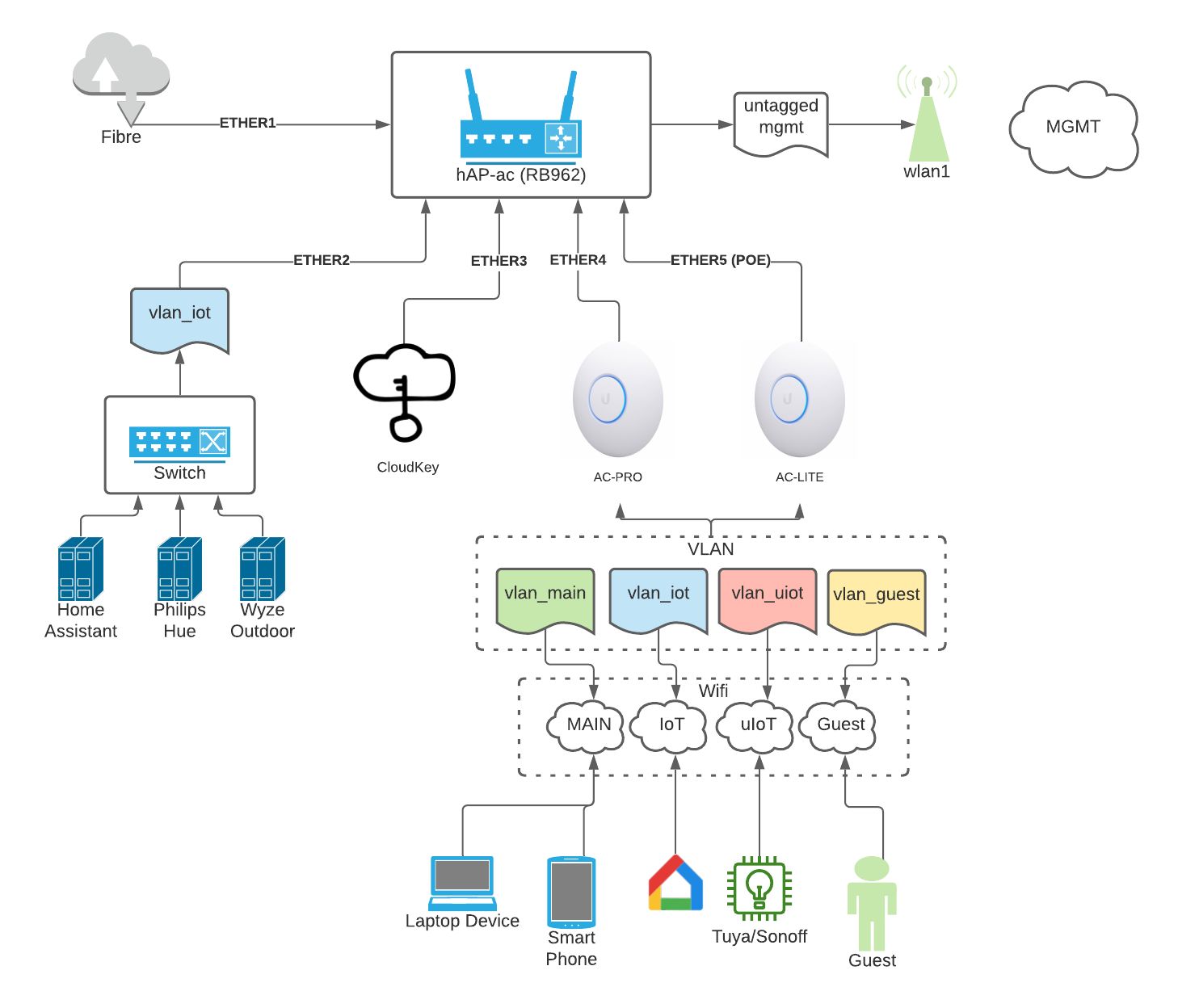Introduction
Welcome to the world of IP addresses! If you’ve been exploring the realms of web hosting or online security, chances are you might have come across the terms “shared IP address” and “dedicated IP address.” But what exactly are these IP addresses, and why do they matter?
An IP address, short for Internet Protocol address, is a unique numerical label assigned to each device connected to a computer network. It serves as an identification and location system, allowing devices to send and receive data over the internet.
When it comes to web hosting, there are two main types of IP addresses: shared and dedicated. A shared IP address is one that is used by multiple websites hosted on the same server. On the other hand, a dedicated IP address is exclusively assigned to a single website.
While shared IP addresses are the norm in the web hosting industry, dedicated IP addresses offer distinct advantages that make them a popular choice for certain applications. In this article, we’ll dive deeper into dedicated IP addresses, exploring what they are, how they work, and why you might want to consider using one for your website.
So, if you’re ready to unravel the mysteries of dedicated IP addresses, let’s get started!
What is an IP address?
Before we delve into the specifics of dedicated IP addresses, let’s gain a solid understanding of what an IP address is in general. As mentioned earlier, an IP address is a unique numerical label assigned to each device connected to a computer network. It serves as an identifier and locator, enabling devices to communicate and exchange data over the internet.
IP addresses are divided into two types: IPv4 (Internet Protocol version 4) and IPv6 (Internet Protocol version 6). IPv4 addresses consist of four sets of numbers separated by dots, such as 192.168.0.1. On the other hand, IPv6 addresses are written in a hexadecimal format and are significantly longer, providing a much larger pool of available addresses.
IP addresses play a crucial role in routing and directing internet traffic. When you enter a website’s domain name into your browser, a process called DNS (Domain Name System) resolution translates that domain name into an IP address. This allows your device to establish a connection with the website’s server and retrieve the requested web pages or data.
Think of IP addresses as the virtual equivalent of street addresses. They help ensure that data packets sent over the internet reach their intended destinations. Just as your physical address reveals your location, an IP address tells servers and computers where to direct the information you send or request.
Without IP addresses, the internet as we know it would not be possible. Whether you’re sending an email, browsing social media, or streaming your favorite TV show, IP addresses are working behind the scenes, facilitating the flow of data and enabling seamless communication between devices across the globe.
Now that we have a solid understanding of what IP addresses are, let’s move on to the different types of IP addresses, specifically shared and dedicated IP addresses, and discover their unique characteristics and applications.
What is a shared IP address?
When it comes to web hosting, a shared IP address refers to an IP address that is used by multiple websites hosted on the same server. In other words, multiple websites share the same IP address, and the server routes incoming requests based on the domain name specified in the request.
Shared IP addresses are the default option for most web hosting providers. They offer cost-effectiveness and efficient resource allocation, as multiple websites can share the same server resources. However, there are a few implications to consider when using a shared IP address.
Firstly, due to the shared nature of the IP address, if one of the websites on the server engages in malicious activities, such as spamming or distributing malware, it may lead to the IP address being blacklisted. This can negatively impact the deliverability of emails from other websites sharing the same IP address, potentially causing issues with email communication.
Secondly, since multiple websites share the same IP address, they also share the same SSL certificate. SSL (Secure Sockets Layer) certificates are used to enable secure, encrypted connections between websites and users. While it is possible to use a shared SSL certificate on a shared IP address, it may not provide the same level of trust and security as a dedicated SSL certificate.
Lastly, shared IP addresses can pose challenges for websites that require specific server configurations or advanced functionality. For example, if you wish to have full control over your server configurations, including the ability to install specific software or use certain protocols, a shared IP address may not be the ideal choice.
Despite these considerations, shared IP addresses are suitable for most websites, especially those with low to moderate traffic volumes and standard functionality requirements. They are cost-effective and allow for efficient resource utilization, making them a popular choice among individuals and small businesses who are just starting their online presence.
Now that we’ve covered shared IP addresses, let’s explore the concept of dedicated IP addresses and the advantages they offer.
What is a dedicated IP address?
A dedicated IP address is an exclusive IP address that is assigned solely to a single website or server. Unlike shared IP addresses where multiple websites share the same IP, a dedicated IP address provides a unique identifier for your website.
With a dedicated IP address, your website has its own distinct online presence. This means that your website will have its own set of advantages and features that are not shared or influenced by the activities of other websites.
One notable advantage of having a dedicated IP address is improved email deliverability. Unlike shared IP addresses, which may get blacklisted due to the actions of other websites, a dedicated IP address helps ensure that your emails are delivered reliably. This is particularly important for businesses that rely heavily on email communication, such as e-commerce websites or online service providers.
In addition to enhanced email deliverability, having a dedicated IP address allows you to obtain a dedicated SSL certificate. SSL certificates are essential for securing online transactions and establishing trust with your website visitors. With a dedicated IP address, you can install and configure your own SSL certificate, providing a higher level of security and encryption for your website visitors.
Furthermore, a dedicated IP address offers greater flexibility and control over server configurations. It allows you to have full administrative access to your server, enabling you to customize software installations, set up virtual hosts, and configure advanced server settings. This level of control is particularly valuable for websites that require specific server-side applications or protocols.
While dedicated IP addresses offer many benefits, they may not be necessary for every website. If your website does not require SSL encryption or if you have low email communication needs, a shared IP address may suffice. Additionally, dedicated IP addresses may involve additional costs compared to shared IP addresses, so it’s essential to evaluate your website’s specific requirements before opting for a dedicated IP address.
In summary, a dedicated IP address provides unique advantages such as improved email deliverability, the ability to have your own SSL certificate, and greater control over server configurations. Consider whether these benefits align with your website’s needs and budget before deciding to switch to a dedicated IP address.
Why should you use a dedicated IP address?
While shared IP addresses are commonly used and suitable for many websites, there are specific scenarios where having a dedicated IP address can be beneficial. Let’s explore some reasons why you might consider using a dedicated IP address for your website.
1. Email Deliverability: With a dedicated IP address, your website’s email deliverability is not affected by the activities of other websites. This means that your emails are less likely to end up in spam folders or be blocked by email providers, ensuring reliable communication with your audience.
2. SSL Certificate: If you require a higher level of security for your website, a dedicated IP address allows you to install and configure your own SSL certificate. This provides encryption for sensitive data, such as customer information during online transactions, and establishes trust with your visitors.
3. Server Configuration: Having a dedicated IP address gives you greater control over server configurations. You have the freedom to customize software installations, set up virtual hosts, and configure server settings according to your specific needs. This level of control is especially valuable for websites with advanced functionality or specific server-side requirements.
4. Website Reputation: Shared IP addresses can occasionally be associated with websites engaging in malicious or spammy activities. By using a dedicated IP address, you separate your website from potentially negative associations, helping to maintain a positive online reputation.
5. Improved Performance: In shared hosting environments, if one website experiences a sudden surge in traffic or utilizes excessive server resources, it can affect the overall performance of the server. With a dedicated IP address, your website’s performance is not impacted by the activities of other sites, providing a more stable and reliable user experience.
6. FTP and Remote Access: If you frequently access your website’s files via FTP or require remote login capabilities, a dedicated IP address makes it easier to connect to your server securely and without any complications caused by sharing the IP with multiple websites.
These are just a few compelling reasons why you might opt for a dedicated IP address. However, it’s important to assess your website’s specific needs, as dedicated IP addresses may involve additional costs. Evaluate the potential benefits and weigh them against your budget and requirements to make an informed decision.
How does a dedicated IP address work?
Understanding how a dedicated IP address works requires a basic understanding of how websites and servers communicate over the internet. When a visitor accesses a website, their computer sends a request to the website’s server, asking for the requested web page or content. This request includes the IP address of the visitor’s computer.
With a dedicated IP address, the server can identify that the request is specifically intended for the website assigned to that IP address. The server then retrieves and delivers the requested content back to the visitor’s computer.
Unlike shared IP addresses, where multiple websites can be associated with a single IP address, a dedicated IP address is exclusively assigned to a single website. This creates a direct and unique link between the IP address and the website it represents.
When a website uses a dedicated IP address, it means that any incoming requests specifically target that IP address, ensuring that the server properly routes the requests to the correct website. This distinction becomes crucial in scenarios where multiple websites are hosted on the same server, each with its own dedicated IP address.
In addition to enabling precise routing of requests, a dedicated IP address also allows the website to have its own set of default domain settings. This includes hosting the website without relying on the server’s default IP address, enabling the use of SSL certificates specific to that IP address, and offering more control over server configurations tailored to the website’s needs.
Moreover, a dedicated IP address offers a range of benefits for website security and email delivery. Since a dedicated IP address is not shared with other websites, the risk of being blacklisted due to the actions of other sites is eliminated, resulting in improved email deliverability. It also helps in isolating the website’s reputation from any negative associations caused by other sites sharing the same IP address.
To summarize, a dedicated IP address works by providing a unique identifier for a specific website. It ensures that incoming requests are routed accurately and exclusively to the intended website. Using a dedicated IP address offers advantages in terms of security, email deliverability, reputation, and control over server configurations.
How to get a dedicated IP address?
If you’ve decided that a dedicated IP address is the right choice for your website, you may be wondering how to obtain one. The process of acquiring a dedicated IP address typically involves the following steps:
1. Check with your web hosting provider: Start by reviewing your current web hosting plan and checking if it includes a dedicated IP address or if it offers the option to upgrade to one. Many hosting providers offer dedicated IP addresses as an add-on service or include them in certain premium plans.
2. Contact your hosting provider: If your current plan does not include a dedicated IP address, reach out to your hosting provider’s customer support team to inquire about the options available. They will be able to guide you on the process and any additional costs associated with obtaining a dedicated IP address.
3. Upgrade your hosting plan: If your current hosting plan does not include a dedicated IP address, you may need to upgrade to a plan that offers this feature. The hosting provider will assist you in upgrading your plan and setting up the dedicated IP address for your website.
4. Configure the dedicated IP address: Once you have acquired the dedicated IP address, you will need to configure it for your website. This process involves associating the IP address with your domain name and updating the necessary DNS (Domain Name System) records to ensure proper connectivity and routing.
5. Set up SSL certificate: If you intend to use SSL encryption on your website, you will need to install and configure an SSL certificate specifically for your dedicated IP address. This ensures secure communication between your website and its visitors.
It’s important to note that while many websites benefit from a dedicated IP address, it may not be necessary or cost-effective for all websites. Evaluate your specific needs, such as email deliverability, SSL requirements, and server configuration control, to determine if a dedicated IP address is the right choice for your website.
In some cases, virtual private server (VPS) or dedicated server hosting solutions inherently come with dedicated IP addresses. If you require complete control and have the technical expertise, these hosting options may be worth considering.
Remember to consult with your web hosting provider to understand the available options and any associated costs. They will assist you in the process of obtaining a dedicated IP address and help ensure a smooth transition for your website.
Conclusion
In today’s digital landscape, having a clear understanding of IP addresses is essential for website owners and online businesses. While shared IP addresses are the standard choice for most websites, a dedicated IP address offers distinct advantages that may be valuable in certain scenarios.
Shared IP addresses are cost-effective and suitable for websites with low to moderate traffic volumes and standard functionality requirements. They allow multiple websites to share server resources. However, shared IP addresses can have implications in terms of email deliverability and server configurations, as well as potential risks associated with the activities of other websites sharing the same IP.
On the other hand, a dedicated IP address provides unique benefits. It offers improved email deliverability, the ability to have a dedicated SSL certificate, enhanced server configuration control, and isolation from negative associations. These advantages make dedicated IP addresses particularly valuable for businesses that rely heavily on email communication, require advanced functionality, or prioritize security and customization.
If you decide to transition to a dedicated IP address, consult with your web hosting provider to explore your options and understand any associated costs. They will guide you through the process of obtaining and configuring a dedicated IP address for your website.
Ultimately, the choice between a shared or dedicated IP address depends on your website’s specific needs and budget. Assess the importance of email deliverability, SSL encryption, server configuration control, and online reputation management for your website. This evaluation will help you make an informed decision and optimize your website’s performance and security.
Whether you choose a shared or dedicated IP address, understanding the role of IP addresses in the functioning of the internet is essential. With this knowledge, you can make informed decisions about your website’s hosting and ensure a smooth and reliable online presence for your visitors.

























